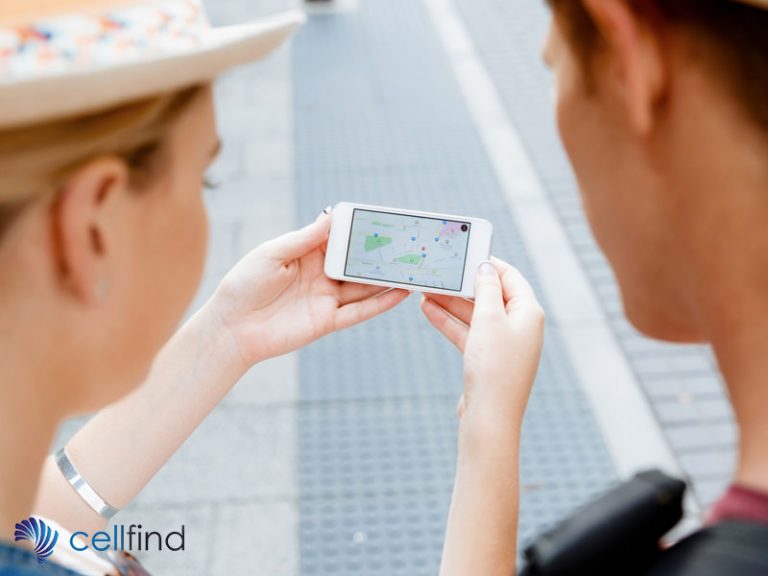Louis Freeh, former U.S. judge and Director of the FBI once said, “Ask the American public if they want a wiretap and they’ll say ‘No.’ If you ask them do they want a feature on their phone that helps the FBI find their missing child, they’ll say, ‘Yes.”
Indeed, tracking and monitoring of our movements via our mobile apps elicits mixed emotions from people. Some despise the Big Brother mentality and resist the idea of being tracked, and others embrace the opportunities offered. In this instance, we are talking about the Location Based Service (LBS) used on mobile, not wire-tapping or infringing on an individual’s privacy.
Defining Location Based Service (LBS)
Chances are good that you already make use of LBS apps on your phone. Essentially, an LBS uses your current location to respond to queries such as, “Where is the nearest fuel station” or to get directions to a specific place. It also has the ability to push notifications to your phone if your location triggers a proximity setting in a particular area. You may receive messages such as, “Pop into ShopMart for special offers on braai packs” or “Grab your free ice-cream from Icecreams-R-Us” as you pass by their outlets.
Search Networking sums LBS up succinctly; “An LBS requires five basic components: the service provider’s software application, a mobile network to transmit data and requests for service, a content provider to supply the end user with geo-specific information, a positioning component (see GPS) and the end user’s mobile device. By law, location-based services must be permission-based. That means that the end user must opt-in to the service in order to use it. In most cases, this means installing the LBS application and accepting a request to allow the service to know the device’s location.”
The growth of LBS apps has been phenomenal since 2000 when they were first used in commerce, and today they are an exciting addition for dozens of reasons.
LBS for Entertainment
There is very little point in striking up a digital conversation with that hot blonde you found on the dating site if she lives in Finland. In this instance, an app which has the potential to end your lonely nights eating popcorn and watching Baywatch reruns would certainly need to know who is available within a 50km radius and not tempt you with an unattainable Nordic goddess.
In much the same way, an LBS allows us to find our friends when we’re out and about, see who has checked into various establishments, receive vouchers from our favourite restaurant, share our location with others or find a date.
Geocaching is a brilliantly fun way of keeping the family busy while exploring the great outdoors – all made possible with LBS
LBS for Personal Safety
On a more serious note, location-based services on our mobile phones have opened up opportunities for enhanced safety and security.
As an example, there are several apps which make excellent use of LBS for instant assistance in the event of a hijacking, home invasion, road accident and medical emergency. An exciting development in the field of personal safety is the ability of this app to notify you when you are entering a hi-jacking hotspot, and for those of us who travel extensively, this is a vitally useful tool!
If you’re a woman on her own and you break down on the side of the road in the middle of nowhere, an LBS app can send your location to your family or emergency service provider, so they know exactly where to find you.
LBS for parents are entering the market thick and fast. With apps such as Find My Kids offering features such as GPS tracking, recording sound and video of your child’s device, setting a notification when they leave a certain area, and monitoring where they have been in the past two days, apps like this help to keep our young ones safe.
LBS for Navigation
Husbands, you no longer need to ask for directions! An LBS can tell you instantly where you are, where you’re going, and how long it will take you to get there. How many fuel stations are on the way? Is there a lot of traffic? What will the weather be like on your journey? Which is the shortest route? Is there roadworks ahead? Are you breaking the speed limit?
The ability to check on the status of any vehicle in your fleet; current location, speed, fuel and driver analytics are things that company owners could only wish for a few short years ago.
Exciting Opportunities for Mobile Networks
There is no doubt that location-based service apps will continue to evolve as new ways are found to monetize the available platforms.
An article from EE Publishers says, “Niche market analysts Micro Market Monitor expects the South African LBS market to grow to $879,6-million by 2019, at an estimated compound annual growth rate of 34,9% between 2014 and 2019.
“Market analysts Pyramid Research have identified most of the opportunities to be in navigation, mobile advertisements, tourism, and consumer tracking. They have found that there has been a rise in demand for personal safety and security applications and social networking services.”
LBS apps certainly offer South African businesses* a thrilling future – are you making the most of mobile?
* In South Africa, mobile LBS services are only available on MTN and Vodacom



1 thought on “Mobile Apps Driving LBS in South Africa”